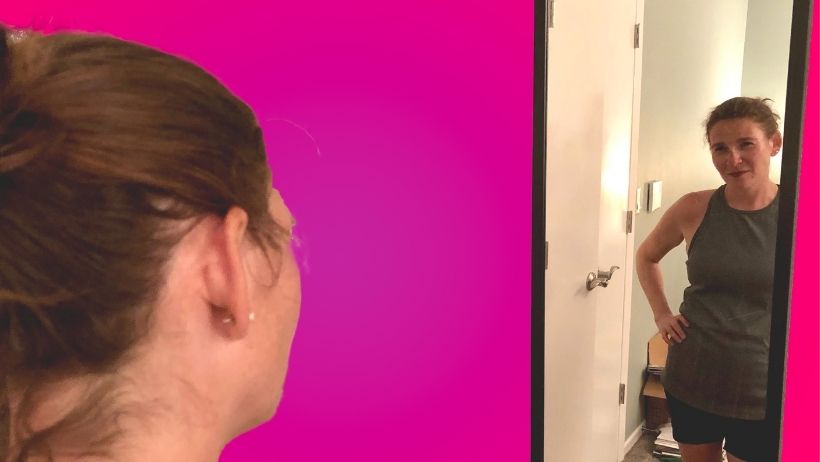For better or worse, we’re constantly examining ourselves. Everyone carries around 4K cameras in their pockets, and just about everything we do is documented somewhere on social media or on Zoom. Sometimes I find physical self-reflection useful, other times not so much. A quick check in the mirror to make sure I don’t have makeup or food in my teeth is helpful, but staring at myself on Zoom all day only feeds into body image issues.

I have a love-hate relationship with seeing myself reflected, especially since taking a look in the mirror can be both helpful and harmful depending on your frame of mind. The 10 Commandments actually begins by telling us not to make engraved images of God, that there is no likeness of God. Perhaps this is a warning to step away from focusing on what we ourselves look like. But as we reach the penultimate parshah of the Book of Exodus, we notice that mirrors actually do play a key role.
We read Parshat Vayakhel this week, where the narrative continues with the requirement to observe Shabbat, and then includes the request to bring gifts to build the Mishkan. After that, Betzalel and Ohilav are appointed as the taskmasters of the construction project, and we hear about the abundance of gifts the Israelites brought to the Tabernacle. But within the construction details are very specific instructions of how everything should fit together.
As the long list of materials is listed, we read that there were mirrors to be placed at the entrance to the Tent of Meeting. Why? If we’re not supposed to have an image of God, why have this reminder in the sacred space of what we ourselves look like while coming and going from where we interact with God?
This could be because mirrors don’t lie. The most honest we can be with ourselves is when we look in the mirror and check the reflection that’s looking back. When you look at it this way, having a mirror isn’t about vanity, it’s about looking ourselves in the eyes and truly discovering who we are and who we want to be.



